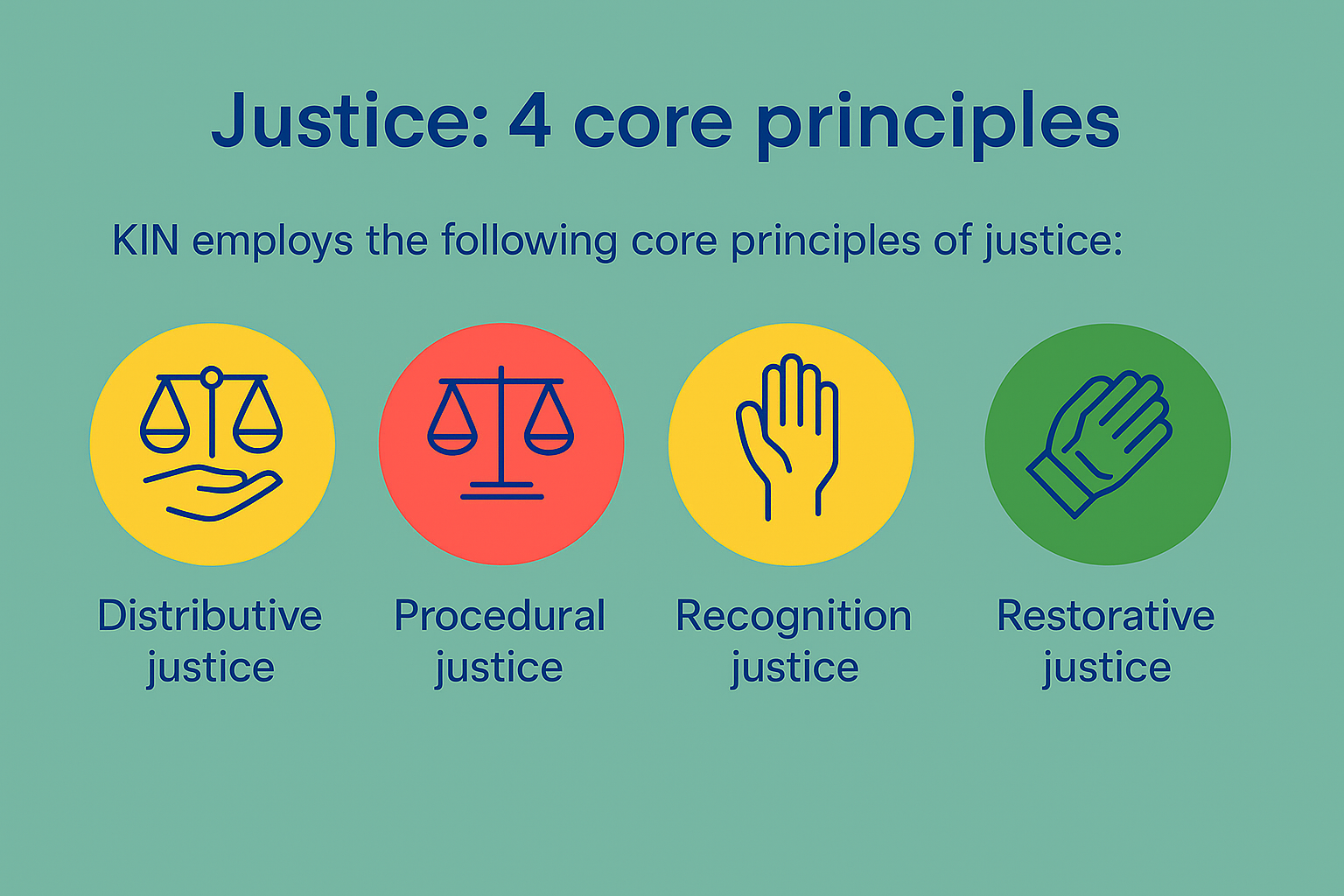“`html
Work packages ACT
Each work package within the ACT programme focuses on a specific research question and objective. The exact details are determined for each city and neighbourhood. Concrete steps have already been taken for a number of packages.

Work package 1: Definitions and Concepts
The aim of this work package is to develop a practical definition of climate justice based on sessions with groups of stakeholders (urban, national and global). The result is a handbook with concrete tools that climate professionals can use to apply justice in their work. Using inspiring case studies, we show how an abstract concept translates into practice.
What does this concept mean in the context of a neighbourhood or district? We also examine which operational frameworks are feasible and usable for effectively implementing climate justice.
Update
In the spring of 2025, a vision document on climate justice was delivered. An assessment framework was also developed for policy officers and climate professionals to provide guidance on applying climate justice in their daily work.
Contacts: Dat Nguyen and Ted Veldkamp

Work package 2: Barriers
This work package examines which existing legal, administrative and financial barriers hinder the acceleration of just climate transitions in neighbourhoods. How can a shared understanding of these barriers and (creative) insights help to address them?
The transition to a climate-neutral urban society faces major obstacles in terms of finance, legislation and governance. Large upfront investments are often required, but current public and private systems do not provide the necessary funding – or do so in ways that do not guarantee justice. Legal and administrative rules can also delay or block implementation, which raises serious concerns: communities with less capital or capacity risk being left behind. These challenges also raise questions about how sustainable and scalable current strategies are, and who gets to shape them.
Initial findings show that although local contexts differ, many barriers are shared. There are various methods to work around these barriers, but applying them to real-world cases requires care. We do not view barriers as fixed obstacles, but as boundaries: dynamic conditions with which stakeholders can engage, set priorities and reshape so that distant or often overlooked interests are also taken into account in neighbourhood transitions.
The work consists of three phases:
– Phase 1: developing an overview of boundary categories and practical methods for working with them.
– Phase 2: testing these approaches in two neighbourhood cases within the ACT programme, helping communities explore what works in practice.
– Phase 3: summarising and sharing the lessons in a publicly accessible tool. By showing how boundaries influence who benefits and who is excluded, we aim to support more inclusive, effective and just urban climate transitions.
In the first phase of the project, boundaries and collaboration methods have been identified and categorised. These efforts build on the work of colleagues in the ACT programme, as well as lessons on collaboration methodologies (e.g. NECTR) and close cooperation with various public and private institutions engaged in just climate transitions in the Netherlands. Research is also being carried out into neighbourhood cases where specific instruments can later be tested and help local stakeholders advance their work.
Contacts: Zac Taylor and Lizet Kuitert

Work package 3: System complexity
How can we ensure that health and well-being considerations are adequately taken into account in climate transitions? This work package identifies important system interactions and complexities so that just climate transitions can be linked to health and well-being in neighbourhoods. To this end, it also examines how stakeholder- and data-driven system insights could be integrated into pathways for just climate transition at the neighbourhood level.
Contacts: Maud Huynen and Franziska Klein

Work package 4: Participatory approaches
The central question within this work package is how fair and inclusive participatory processes can accelerate just climate transitions in neighbourhoods. And how you can create dynamic paths for this in co-creation.
Contacts: Gert-Jan Oud and Dana Stuparu

Work package 5: Best Practices for Sustainable Consumption
This work package collects existing best practices in sustainable consumption (of products and services, such as mobility, energy, food) in neighbourhoods in Maastricht, Nijmegen, Eindhoven, and Rotterdam. Those involved will then work with the neighbourhoods to develop concrete measures to make consumption and mobility more sustainable and equitable. How can we scale up existing practices such as reduced consumption, second-hand goods, car sharing and local repairs, and develop new initiatives where necessary?
Update
Various neighbourhood initiatives in Eindhoven and Maastricht have now been interviewed (e.g. repair cafés, energy cooperatives and car or goods sharing initiatives).
A PhD candidate has also been accepted who, starting in September 2025, will conduct in-depth research through Utrecht University and contribute to setting up living labs in the neighbourhood. These living labs should lead to the development of ways to accelerate a fair climate transition at the neighbourhood level.
Finally, a literature review on the overconsumption of goods and mobility has been completed, which also looked at the effectiveness of policy measures to combat this overconsumption.
The conversations with the initiatives in the neighbourhoods can be read and listened to in the podcast “The sustainable neighbourhood” (in Dutch).
Contacts: Rob van der Rijt and Dick Ettema

Work package 6: Learning by doing & Coordination
This work package investigates how transdisciplinary learning processes can be effectively facilitated to enable transformation at neighbourhood level. It also looks at how this can be incorporated into a generic learning process so that it can also be used in other regions and neighbourhoods in the future.
Update
In the spring of 2025, the first “Learning Space” took place, in which the most pressing questions surrounding fair climate transition in the four cities were identified by local stakeholders.
Contact: Marc Dijk and Funda Atun

Work package 7: Transformative Leadership
This work package identifies the skills that sustainability professionals and informal climate leaders need to work on equitable climate transitions in neighbourhoods, and the pitfalls and bottlenecks that can be identified. How can you offer the necessary competencies in both tertiary education and training (on the job/in the neighbourhood) so that current and future sustainability professionals can learn and develop (in)formal climate leadership?
Contacts: Paquita Perez and Jifke Sol

“`

